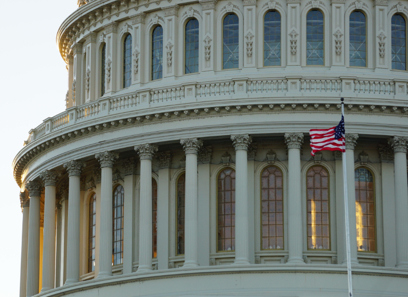M&A Outlook: The Role of Economic Factors in Shaping Global Mergers and Acquisitions
M&A Outlook: The Role of Economic Factors in Shaping Global Mergers and Acquisitions
Blog Article
The Impact of Mergers and Acquisitions on Market Characteristics and Competition
The landscape of mergings and purchases presents a complex interaction in between promoting development and possibly weakening competitive stability within markets. As companies go after tactical placements to boost efficiency and technology, the ramifications on customer option and market rates warrant cautious examination. While the advantages of such consolidations can be noticeable, the darker effects commonly arise, raising critical inquiries regarding market power and the regulative structures made to maintain equilibrium. This discussion invites an exploration of the nuances entailed, disclosing just how these company maneuvers reshape the really structures of competition.
Introduction of Mergers and Acquisitions
Mergers and procurements (M&A) play a pivotal function fit the landscape of modern-day service, as firms seek to improve their one-upmanship and attain tactical objectives. M&A transactions involve the consolidation of business or assets with various economic transactions, including mergers, where 2 companies integrate to develop a brand-new entity, and purchases, where one business acquisitions one more outright. These activities are driven by a myriad of factors, such as the search of synergies, diversification of product offerings, and the need to go into new markets.
The M&A process typically entails a number of phases, consisting of critical preparation, due persistance, arrangement, and integration (Emerging Market Opportunities). Business conduct thorough evaluations to recognize potential targets that line up with their development strategies and assess the financial and operational effects of a deal. Governing considerations additionally play an important role, as antitrust regulations are made to stop monopolistic techniques that can hurt competitors
As companies navigate the complexities of M&A, the outcomes can substantially affect stakeholders, consisting of customers, investors, and employees. Recognizing the dynamics of M&A is vital for examining their effects within the broader context of market actions and competitive positioning.
Favorable Impacts on Market Characteristics
The combination of business through mergers and procurements can lead to considerable positive results on market characteristics. This efficiency can convert right into reduced prices for consumers, cultivating an extra affordable market environment.

Furthermore, enhanced market share arising from mergings can provide firms with higher negotiating power with distributors and vendors, helping with boosted terms and problems that can benefit the general supply chain.
Adverse Consequences for Competitors

In addition, the elimination of rivals with purchases can suppress development. When crucial players combine, smaller companies may struggle to contend, bring about a homogenization of products and solutions. The resultant lack of competitors can develop an atmosphere where continuing to be firms have less reward to buy research and development.
In addition, mergers can develop barriers to access for new companies, as the joined entity may utilize its improved resources to control the market. This can deter prospective participants, therefore restricting competitors and innovation in the long-term.
Eventually, while mergers and purchases can provide tactical advantages, their potential to undermine competitors necessitates careful factor to consider of their wider implications on the market characteristics. The balance in between development and competitive integrity remains a vital concern in assessing such company methods.
Governing Considerations and Oversight
Regulatory frameworks play an essential role in shaping the landscape of purchases and mergings, making certain that market dynamics continue to be reasonable and affordable. These structures are developed to prevent anti-competitive habits and to protect customer interests. Governing bodies, such as the Federal Profession Commission (FTC) in the United States and the European Payment in the EU, evaluate suggested mergers and procurements based upon their potential effect on competition within the marketplace.
The evaluation procedure includes a comprehensive investigation of the market share, capacity for monopolistic techniques, and the total financial implications of the transaction. Regulators usually enforce conditions or need divestitures to alleviate problems over minimized competitors, making certain that the merged entity does not control the marketplace unfairly.
This collective approach assists to cultivate a well balanced regulative atmosphere that advertises innovation while protecting competitive techniques. Ultimately, efficient regulative considerations are essential in preserving market integrity and motivating healthy competitors in the face of advancing business landscapes.
Study and Real-World Examples
Regularly, instance researches Emerging Market Opportunities of significant mergings and purchases show the profound results these transactions can have on market characteristics. The 2000 merger between AOL and Time Warner offers as a prime example, where the expected synergies dropped short, bring about an extreme decrease in shareholder value. This instance underscores just how cultural imbalances and overestimation of market capacity can disrupt competition.
In comparison, the purchase of WhatsApp by Facebook in 2014 exhibits a successful combination that reshaped the interaction landscape. Emerging Market Opportunities. Facebook leveraged WhatsApp's user base to enhance its service offerings, successfully raising its market prominence while maintaining competition in the messaging field
One more substantial situation is the merger of Exxon and Mobil in 1999, which developed among the globe's largest oil business. This debt consolidation brought about higher effectiveness however increased concerns regarding reduced competitors in the power market, prompting regulative examination.
These examples highlight the complex interaction between purchases and mergings and market characteristics, showcasing both the potential benefits and pitfalls that can develop, inevitably shaping competitive landscapes across markets.
Conclusion
Mergers and purchases play an essential role in forming market characteristics and competition. While they can bring about raised efficiencies and innovation, they additionally present dangers such as decreased competition and higher consumer prices. Reliable regulative oversight is important to guarantee that the advantages of M&An activities are made best use of while mitigating adverse influence on market competition. A well balanced approach can help protect customer welfare and foster an affordable landscape that urges both growth and technology.
One significant worry is the capacity for decreased market competition, as mergers usually lead to the debt consolidation of market power among less gamers. Regulative bodies, such as the Federal Profession Compensation (FTC) in the United States and the European Compensation in the EU, examine recommended mergings and acquisitions based on their possible impact on competitors within the market.

Mergers and acquisitions play an essential role in shaping market characteristics and competitors. Reliable governing oversight is vital to ensure that the advantages of M&An activities are made the most of while mitigating unfavorable impacts on market competitors.
Report this page